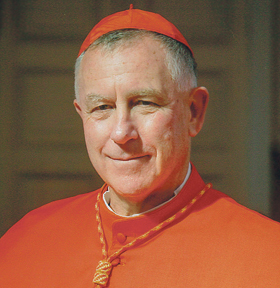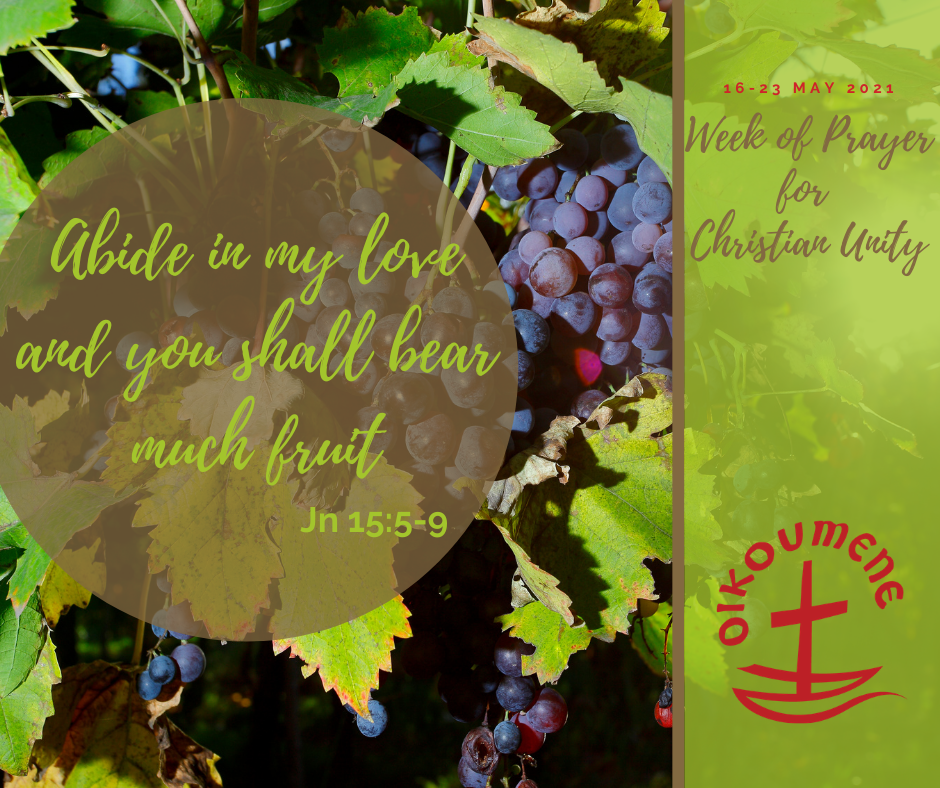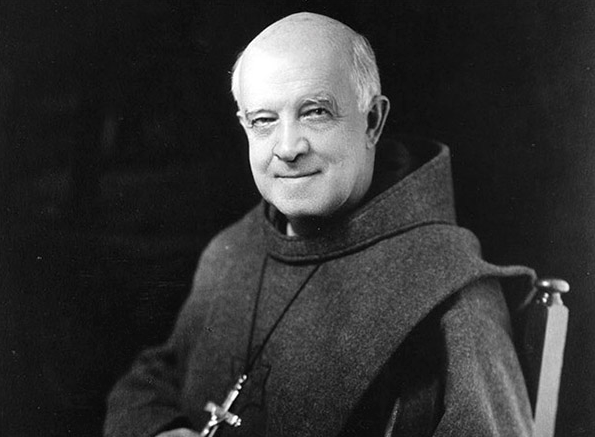WelCom May 2021
16–23 May 2021 | 6–23 Haratua 2021
Dear friends,

Photo: Woolf
In the week between Ascension and Pentecost Sundays – 16 May to 23 May – the Christian churches celebrate the Week of Prayer for Christian Unity. We are united in our desire for unity, although we know this is a long road.
In Aotearoa New Zealand the Christian churches work together in many ways – prison and hospital chaplaincy, advocacy on behalf of those who are disadvantaged, resettlement of refugees are just some examples. In some places we gather together to worship at times such as Ash Wednesday and Advent. This is a long way from the strained and often hostile relationships that have existed among Christian churches in past times. We are blessed to be living in a time when we can talk together about unity, pray together and work together for others.
The theme for this year’s Week of Prayer is ‘Abide in my love and you shall bear much fruit’ (Jn 15:5-9). If possible try to take part in the Week of Prayer in some way, with others or on your own. The prayers for the Eight Days between Pentecost and Easter can be found at www.catholic.org.nz or on your diocesan website, together with other information about the Week of Prayer.
Each of us has a part to play.
Cardinal John Dew
Catholic Bishops Committee for Ecumenism
The Week of Prayer for Christian Unity (WPCU) is an ecumenical Christian observance, celebrated internationally every year between Ascension Day and Pentecost in the Southern Hemisphere, and between 18 January and 25 January in the Northern Hemisphere. It is co-ordinated by the Catholic Church’s Pontifical Council for Promoting Christian Unity and the World Council of Churches (WCC).
The observance is an ‘octave’ – lasting eight days – in which Christians come together to pray for unity. Congregations and parishes all over the world exchange preachers or arrange special ecumenical celebrations and prayer services.
The WPCU began in 1908 as the ‘Octave of Christian Unity’ focussing on prayer for church unity. Fr Paul Wattson, cofounder of the Graymoor Franciscan Friars in New York, proposed the dates for the week.
Pope Pius X officially blessed the concept and Benedict XV ‘encouraged its observance throughout the entire Roman Catholic Church’. Protestant leaders in the mid-1920s also proposed an annual octave of prayer for unity amongst Christians leading up to Pentecost Sunday – the traditional commemoration of the establishment of the Church.
In 1935, Abbé Paul Couturier of Lyons, France, who has been called ‘the father of spiritual ecumenism’, proposed naming the observance ‘Universal Week of Prayer for Christian Unity’, enabling other Christians with differing views of the Petrine ministry to join in the prayer. His proposal was accepted by the Catholic Church in 1966.
In 1948, with the founding of the World Council of Churches, the WPCU became increasingly recognised by different churches throughout the world.
The year 1968 saw the first official use of materials for the week prepared jointly by the WCC’s Faith and Order Commission and the Catholic Church’s Pontifical Council for Promoting Christian Unity.
To prepare for the annual celebration, ecumenical partners in a particular region are invited to produce a basic liturgical text on a biblical theme. An international editorial team of WCC and Catholic representatives refines this text to ensure it can be prayed throughout the world.
The text is then jointly published by the Pontifical Council for Promoting Christian Unity and the WCC. The final material is sent to WCC member churches and Catholic episcopal conferences, and they are invited to translate the text and adapt it for their own use.
The material for the 2021 WPCU has been prepared by the Monastic community of Grandchamp – a community of about 50 women in Switzerland that brings together sisters from different churches and various countries. Their ecumenical vocation is a commitment to the path of reconciliation among Christians and within the human family, and to respect the whole of creation.
‘The Universal Week of Prayer for Christian Unity enables Christians with differing views to join in the prayer.’

“Abide in my love and you shall bear much fruit.”
Jn 15:5-9
The preparation of the resources for the Week of Prayer is overseen jointly by the World Council of Churches and the Pontifical Council for Promoting Christian Unity. This year they asked the ecumenical Monastic Community of Grandchamp in Boudry, Neuchâtel, Switzerland to prepare the resources. The community’s work was then adapted for Aotearoa New Zealand by the Catholic Bishops Committee for Ecumenism.
The resources including prayers, reflections and hymns for each of the eight days for the 2021 Week of Prayer for Christian Unity, are on the New Zealand Catholic Bishops’ website at: https://www.catholic.org.nz/resources/week-of-prayer-for-christian-unity-2021-resources/
You are invited to use this material.
Further Links:
Catechesis – Prayer for Christian Unity, Pope Francis, General Audience, 20 January 2021, is on the Vatican website at: http://www.vatican.va/content/francesco/en/audiences/2021/documents/papa-francesco_20210120_udienza-generale.html
Fr Paul Wattson SA – cofounder of the Week of Prayer for Christian Unity

Lewis Thomas Wattson was born in January 1863 in Millington, Maryland, USA. He was ordained as an Episcopal priest in 1886. In 1898, he helped to found the Society of the Atonement, taking vows of Franciscan poverty, obedience and chastity at Graymoor in New York, with the mission of promoting Christian unity. In 1899, while still a priest of the Episcopal Church, he and some friends established the Franciscan Friars of the Atonement at Graymoor, NY (at which time he assumed the name Paul). The Sisters of the Atonement, also Protestant, had been established the year before by Mother Lurana Francis. In 1909 Fr Paul Wattson and his associates startled Protestants and Catholics alike when they made their corporate submission to Rome. On October 9, 1909, both congregations were corporately received into the Roman Catholic Church. On June 16, 1910, Fr Paul was ordained a Priest of the Catholic Church at the Dunwoodie, New York, Seminary.
His life purpose and legacy was work for the realisation of Christ’s prayer at the Last Supper: ‘That all may be one: as thou, Father art in me, and I in thee, that they also may be one in us.’ (John 17:21)
Timothy Cardinal Dolan of the Archdiocese of New York formally opened the Cause for Canonisation of Fr Paul on 22 September, 2015 in New York City.